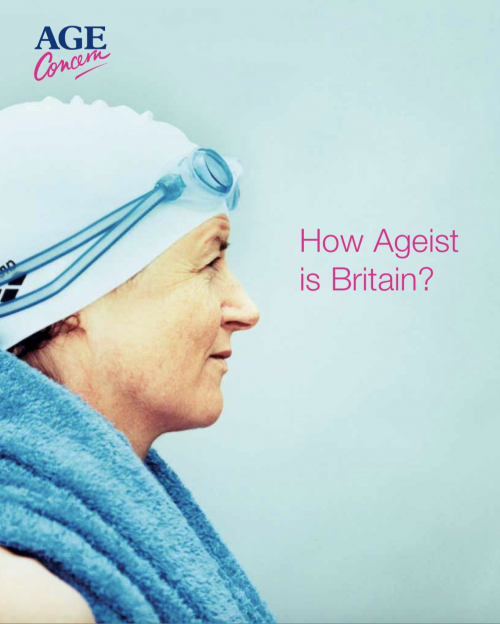
In this report for Age Concern, Professor Dominic Abrams explores age discrimination in Britain. In the first national representative sample survey, Professor Abrams conducted detailed interviews with 1,843 people with questions developed through a mixture of thorough literature review and evaluation, workshop development, qualitative testing and quantitative validation. This findings have important implications for public bodies that promote equality, legal enforcers, marketers, advertisers and lay people.
More about Professor Dominic Abrams
Full text of report
About
During the last three decades, several initiatives have been put in place to ensure equality for all. For example, the Equality Act offers legal protection against discrimination on the basis of race, gender, disability, religion, sexual orientation, pregnancy and marriage/civil partnership and age.
‘However, our lives are defined by ageing: the ages at which we can learn to drive, vote, have sex, buy a house or retire, get a pension, travel by bus for free. More subtle are the implicit boundaries that curtail our lives: the “safe” age to have children, the “experience” needed to fill the boss’s role, the physical strength needed for some jobs. Society is continually making judgements about when you are old enough for something – and when you are too old. But if we allow ageism to flourish unchallenged it means that “too old” can lead to discrimination’ (Abrams, 2005, p.2)
In the first national representative sample survey, Professor Abrams conducted detailed interviews with 1,843 people with questions developed through a mixture of thorough literature review and evaluation, workshop development, qualitative testing and quantitative validation.
This findings have important implications for public bodies that promote equality, legal enforcers, marketers, advertisers and lay people.
Research objectives
The primary objectives were:
•To create a comprehensive review of research on ageism prejudice.
•To conduct the first national representative sample survey (GB) on attitudes to ageing.
•To examine ways in which age discrimination can be improved.
Programme and methodology
•A thorough literature review and evaluation
•Workshop development
•Survey
Findings
•More people (29%) reported suffering age discrimination than any other form
•From age 55 onwards people were nearly twice as likely to have experienced age prejudice than as any other form of discrimination
• Nearly 30% of people believed there is more prejudice against the old than five years ago, and that this will continue to get worse
• One third of people thought that the demographic shift towards an older society would make life worse in terms of standards of living, security, health, jobs and education
•One in three respondents say the over 70s are viewed as incompetent and incapable
Impact
•This project offers new and important information on understanding ageism in Britain. It is only through the understanding of the workings of ageism that efforts can be made to reduce it.
•This project shows a clear pattern of prejudice towards older people in media outlets (e.g., TV, advertisments). It suggests the establishment of firmer legal protection against ageism.
•The project offers clear guidelines towards the Equality & Human Rights Commission that will help reduce ageism in Britain. These include:
+ Ensuring that public bodies promote age equality
+ Protection against ageism in the provision of goods and services.
+ A new definition of public authority under the Human Rights Act to protect more vulnerable older people.
+ The Commission should consult not only established partners and experts but also exclude those in work or seeking work in their 50s or 60s.